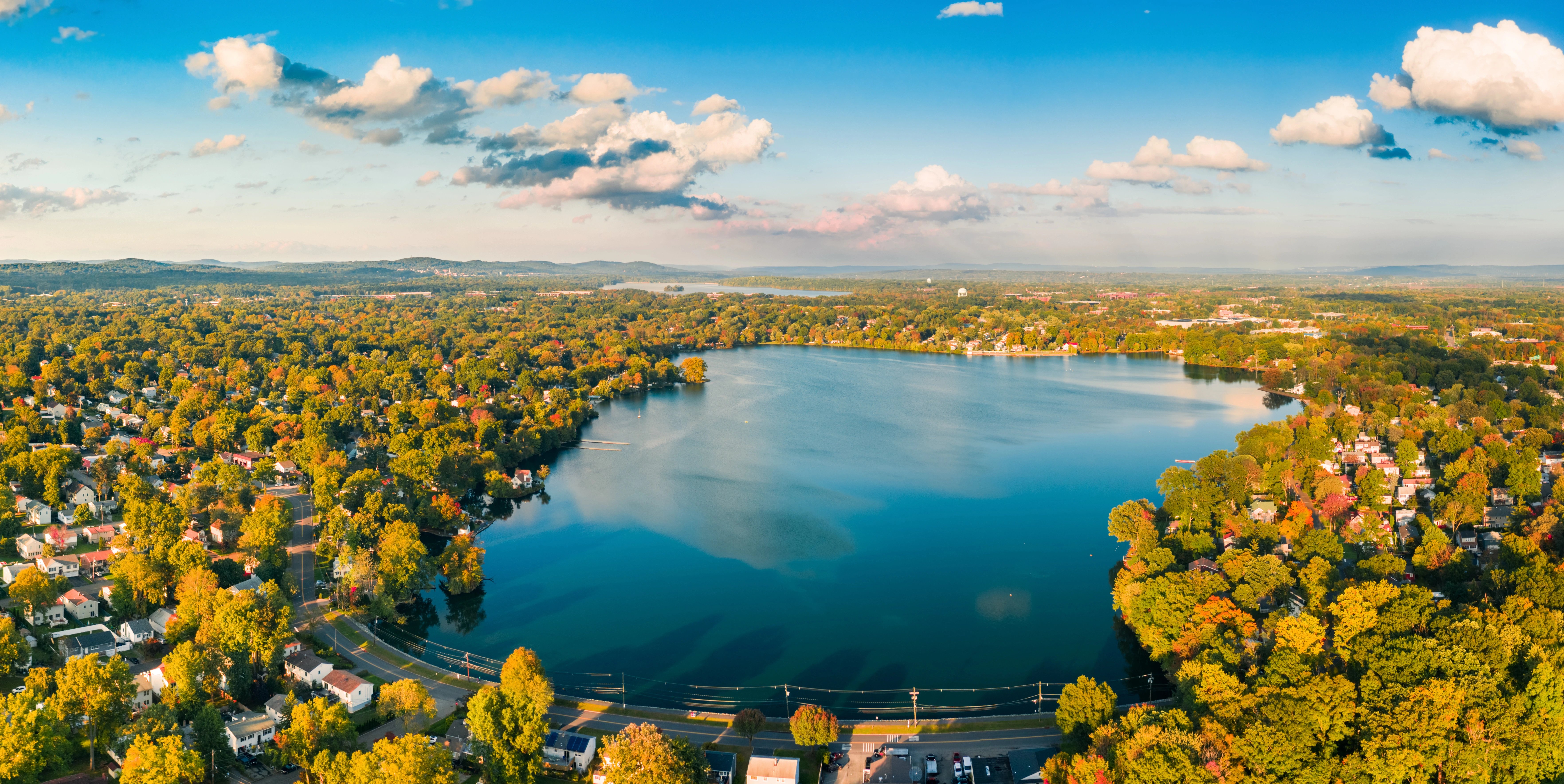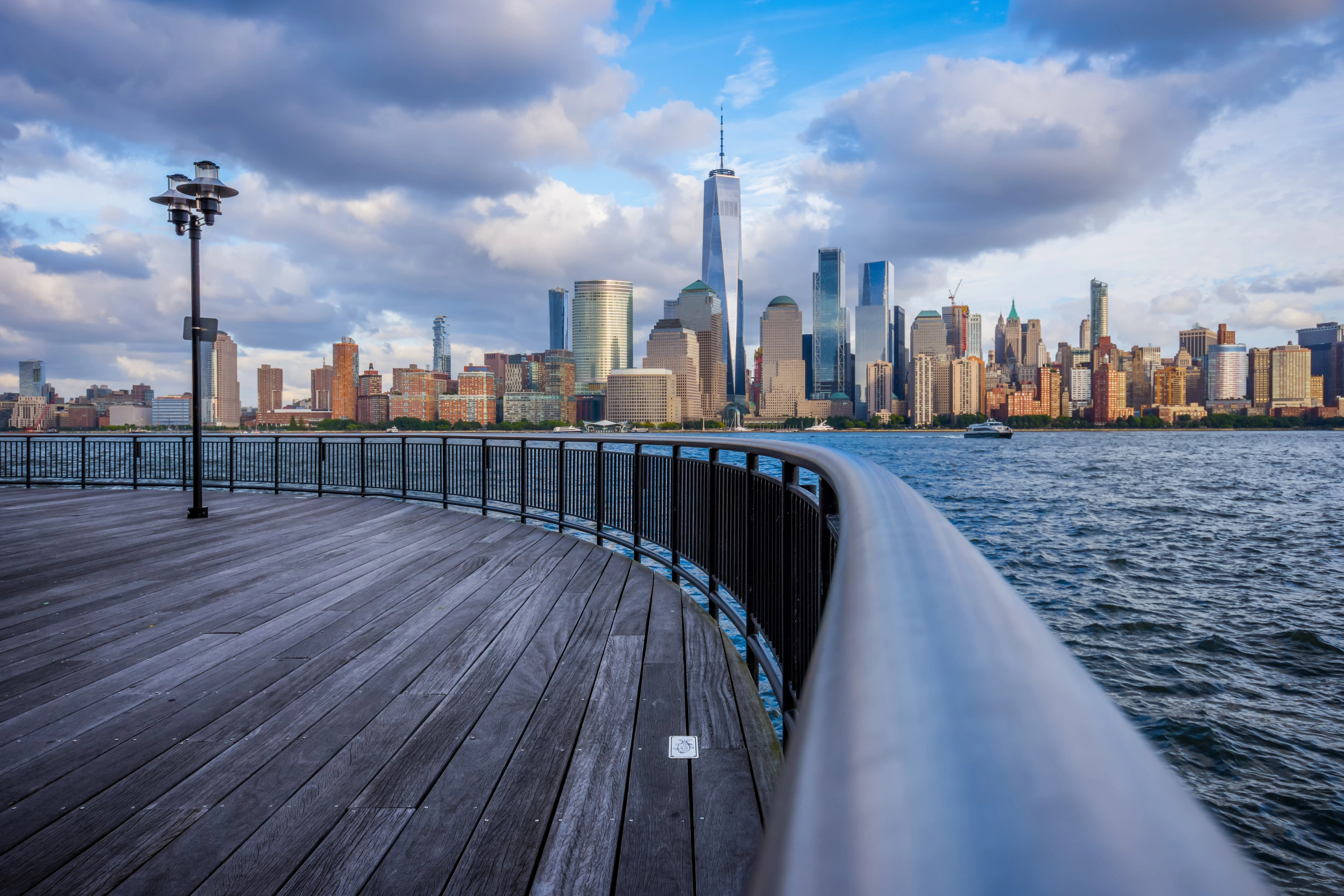New Jersey Waters
Free Permitting Checklist
Practical Tips to Avoid Environmental Risk on all Your Projects
Download our environmental permitting checklist to get a step-by-step list of ways to protect your project from the 9 most common environmental risks.
Download Your Checklist
Learn everything you need to know about New Jersey waters and wetlands.
Why Are Water Protections Different By State
Water is an essential resource for drinking water and industrial use, meaning that water quality protection is critical at the state and federal levels. The Environmental Protection Agency (EPA) enforces the federal Clean Water Act (CWA), by outlining thresholds for the amount of pollutants that facilities can discharge. States create and enforce water legislation tailored to the states' unique water withdrawal and water input rates and ecosystems. New Jersey water resources are monitored by the New Jersey Department of Environmental Protection (NJDEP).
State law protects the water quality of New Jersey waters by monitoring groundwater and surface water use through a permit system in which operators must apply for a withdrawal permit from the NJDEP. Groundwater permits are required for users withdrawing more than a certain amount of water per month.
Jurisdictional Waters of the U.S. (WOTUS) are protected by the CWA. However, the CWA holds vague definitions for WOTUS, leading to ambiguity interpretations of these waters. Some states added additional definitions to waters to protect waters that do not receive CWA protection as interpreted by different administrations.
Water use and needs vary by state and ecosystems that reside in protected waters vary significantly by state- creating the need for state-specific regulations.
Who Protects New Jersey Waters?
Environmental Protection Agency (EPA)
The EPA plays an executive role in enforcing the CWA and is responsible for managing state and tribal compliance with the CWA. This federal agencies works in tandeum with tribes and states to ensure proper permitting and protection.
New Jersey Department of Environmental Protections (NJDEP)
The NJDEP is responsible for working with local and federal agencies to protect New Jersey's water, air, and land resources. The agency does this by cleaning up pollution and contamination, improving industrial and municipal infrastructure to use natural resources and fuel more efficiently, monitoring soil remediation and enforcing remediation standards to prevent harmful chemicals in contaminated soil from polluting waterways through runoff, and upholding other environmental standards. The NJDEP also monitors and enforces Groundwater Quality Standards, Drinking Water Quality Standards, and Surface Water Quality Standards.
New Jersey Shore Protections: Cape May
The state of New Jersey sits along the East Coast's Atlantic Flyway, a sort of bird migration super highway. Each Fall and Spring, large concentrations of North American migratory birds pass through New Jersey and stop for rest, food, and water on their journey. Intact habitat and water supplies are essential to these birds as they fly up to thousands of miles each season. Additionally, intact and healthy coastal land and ecosystems mitigate damage and costs from severe weather and hurricanes.
To protect and enhance the ecosystem services provided by Cape May, the Army Corps of Engineers, City of Cape May, Lower Township, the Nature Conservancy, Borough of Cape May Point, the New Jersey Department of Environmental Protection, and Cape May Point State Park partnered in 2003 to restore and strengthen the natural landscape of Cape May. This project's restores and protects fish and wildlife habitat and provides flood and storm damage reduction benefits in the area of study.

Surface Water Quality Standards (SWQS)
Antidegradation Designations
Surface Water Quality Standards (SWQS) are enforced by the NJDEP. New Jersey uses a categorization system that includes Stream Classifications and Antidegradation Designations to designate waters by use in order to monitor and enforce the appropriate level of surface water quality required for that use. Category 1 or C1 surface waters are waters that are "protected from any measurable change in water quality" due to being of high ecological significance, high significance to water supplies, or of high significance to fishing resources.
Delaware River Basin Commission (DRBC)
In 1961, the Delaware River Basin Commission was created with the federal government in partnership with several states along the heavily polluted Delaware River. The Delaware River is an important waterbody that runs through Trenton, New Jersey, home to Rutgers University, and into New York State near New York City before meeting the Raritan River at the Delaware Raritan Canal. In the years since its creation, the commission has implemented comprehensive water quality standards and worked with wastewater treatment plants to manage toxic waste. Water quality has improved to the extent that some fish populations have returned, though not all parts of the river are safe for fishing or swimming yet.
Barnegat Bay Restoration, Enhancement, and Protection Strategy
The New Jersey shoreline Barnegat Bay is part of New Jersey's coastal waters, and is a popular destination along the Jersey Shore. The Barnegat Bay Restoration, Enhancement, and Protection Strategy is led by NJ DEP and is guided by four key strategy components: Restoration, Enhancement, Protection and Assessment. Though it didn't make it into the name of the strategy as other components did, environmental assessment is the diagnostic tool that allows NJ DEP to make recommendations to restore, enhance, and protect the Bay. The Barnegat Bay Strategy is holistic, considering Bay infrastructure, mitigating nonpoint source pollution through drainage infrastructure, and legislation to limit the nitrogen content for fertilizer and the amount of fertilizer used in agricultural production.
New Jersey Freshwater Wetlands Protection Act
Passed in July 1987, The New Jersey Freshwater Wetlands Protections Act was developed in response to the findings of the legislature that Jew Jersey freshwater wetlands provide social and economic benefits that are an incentive for preservation. These benefits include storm surge mitigation along the New Jersey shore as well as inland, drinking water supply filtration, and overall improved health and wellness for the populace as a result of the services provided by wetlands. This act introduced a mandatory compliance permitting system that enables oversight of activities such as construction, wastewater treatment operations, transportation, and other activities that could affect water quality.
Federal Assistance for New Jersey Waterbodies
In mid-February 2023, the Biden Administration announced it would fund $66.1 million worth of funding to make necessary upgrades to infrastructure and distribution systems that impact drinking water quality in New Jersey. The funding is aimed particularly at removing Per- and Polyfluoroalkyl Substances (PFAS) from the drinking water supply. This announcement comes along with a report from the EPA, Emerging Contaminants in Small or Disadvantaged Communities Grant Implementation, which will direct funding to improve drinking water supply water quality from waterbodies in small, rural, and/or disadvantaged communities.
Identifying Protected Waters
Environmental Consultants
Environmental consultants are experts in the environmental permitting process. They evaluate a site for environmental risk, writing an environmental report over weeks or months. These experts a water body's jurisdiction and the steps to mitigate risks to protected natural features.
Transect
Transect uses integrated datasets, such as the National Hydrography Dataset, to automate the mapping of WOTUS and locate groundwater and surface water concerns in a region. The platform uses prior and current data about water manifestations to assess a specific area. The software provides the likelihood of regulated water's, such as wetlands and protected tributaries, presence on a site, and the water's current jurisdiction, and includes a corresponding confidence level in its occurrence.
Transect will also provide site-specific permitting requirements and next steps required to comply with federal, state, and local laws. Transect includes a comprehensive report including protected species, waterways, transmission lines, distribution data, and financial incentives in minutes.
These on-demand environmental assessments can aid in early site selection to avoid selecting a project site that possesses multiple waters.
Transect data will stay updated with changing regulations to keep developers on track for their projects.
Free Permitting Checklist
Practical Tips to Avoid Environmental Risk on all Your Projects
Download our environmental permitting checklist to get a step-by-step list of ways to protect your project from the 9 most common environmental risks.

